
What Happened to Hemp in Idaho?
By Hari Heath
Well, we got nothing from the legislature this year. Idaho is one of two states that doesn’t have a plan for industrial hemp production. Cannabis, with any THC, is still illegal in Idaho. Meanwhile, all around us, Hemp is becoming a big business. Oregon projects a billion dollar industry for the 2019 growing season.
Some states were already growing hemp under the 2014 Federal Farm Bill. It allowed hemp production on a research basis. The 2018 Federal Farm Bill, passed by Congress and signed by President Trump in December of 2018, opened the door for states to develop state hemp plans and grow hemp for a variety of industrial purposes. And what a variety that is!
HEMP’S INCREDIBLE USES
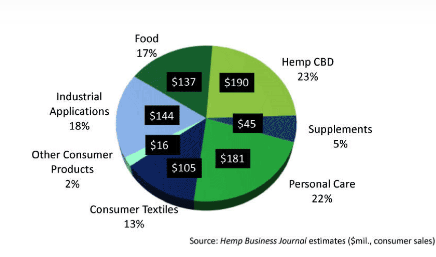
Food, the seeds are 60% oil, well balanced with Omega 3 and 6 factors. It is the second most nutritious seed for human consumption. And the oil can be a good source for biodiesel. Fiber, the outer part of the stalk has a durable fiber, used for clothing, paper and many other purposes. The sails and ropes on the ships that brought European settlers to America were hemp. That same fiber, baked under controlled conditions, can become an affordable source of the carbon base for supercapacitors, which may be the batteries of the future.
The core of the stalk, called hemp hurds, can be ground to make hempcrete, useful for many types of construction from panels to poured walls. And Zeoform.com has a unique process to turn hemp hurds into a plastic that can be as hard as obsidian, as durable as aluminum, or as light as Styrofoam and made from just hemp and water.
Our world has been made of hemp products for over 5,000 years. Humans have been cultivating hemp for at least that long, and we appear to be made for it. Or rather, it has made for us. Cannabis has many cannabinoids which help the human body function. Our bodies have an endocannabinoid system which helps feed and regulate our various autonomous functions. Cannabinoids like CBD have shown very positive results for a number of health issues. With approximately 200 cannabinoids discovered so far, we have only just begun to find how useful this plant is.
Of the 200 or so cannabinoids, one has been given a lot of attention in the past 85 years: THC or Tetrahydrocannabinol. It has some beneficial uses for certain ailments and conditions, but many people don’t like it because it also makes people, well, stoned.
In those 85 years much information, misinformation, propaganda and sometimes outright lies have formed public opinion and created a great deal of confusion about Cannabis, Hemp, and what we now call Marijuana. So how and why did we get to where we are now?
SOME HEMP HISTORY
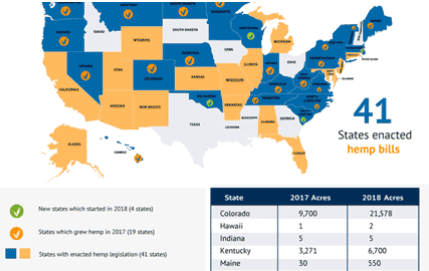 Cannabis is a genus. Cannabis sativa is a species and both the industrial hemp and marijuana cultivars come from that species. People have been cultivating and using these cultivars for many millennia, and as a result, we have many varieties to choose from. The two primary cannabinoids in these distinct cultivars are THC in Marijuana and CBD in Hemp. And interestingly, they seem to be at odds with each other, genetically. When bred for high THC content, like marijuana, the CBD content goes way down. When bred for high CBD content, like hemp, the THC content goes way down.
Cannabis is a genus. Cannabis sativa is a species and both the industrial hemp and marijuana cultivars come from that species. People have been cultivating and using these cultivars for many millennia, and as a result, we have many varieties to choose from. The two primary cannabinoids in these distinct cultivars are THC in Marijuana and CBD in Hemp. And interestingly, they seem to be at odds with each other, genetically. When bred for high THC content, like marijuana, the CBD content goes way down. When bred for high CBD content, like hemp, the THC content goes way down.
But the war on Cannabis, now about 85 years old, was not really waged to stop people from getting stoned on THC containing marijuana. That’s the story we have been fed for all these years, but it is not why!
Hemp had been a hand grown, hand harvested, hand processed product since its beginnings. But industrialization came to hemp. In the early 1900s, mechanization began to take the handwork out of hemp. This made larger scale growing and processing possible and with it, new discoveries and new potential. Potential that threatened existing industrial interests. Like the timber and paper industries, owned by William Randolph Hearst and the petro-chemical industries like DuPont, owned by Pierpont DuPont.
Together and with others, they conspired to put this menace to their interests down. The real target was industrial hemp, but their aim was at what, thanks to their propaganda efforts, we now call marijuana. With much ado about the evil weed (that has fed, clothed, built and lighted our world) they were successful in getting prohibition started with the Marijuana Tax Stamp Act of 1937. The power to tax, is the power to destroy, and the great potential of hemp has been destroyed, in the name of its cousin, marijuana.
HEMP’S COMEBACK, BUT NOT IN IDAHO
But it’s now on its way back. And not just creeping in. The hemp revolution is about to be a Tsunami of production, research, development of new uses and extensive expansion of existing markets and products.
In 2017, 25,000 acres were planted in the US. 2018 saw 78,000 acres and as of only March of 2019, 500,000 acres of permits were applied for. We imported 800 million dollars of hemp materials and products last year, because very little was grown here. That is about to change.
Hemp might Make America Great Again, but not Idaho. Not yet. Why? Political forces destroyed Idaho’s Hemp legislation this year. In closed door, backroom meetings, the Idaho State Patrol, the Idaho Association of Prosecutors and the Governor’s Office first held up the vote on hemp legislation in the House Agricultural Committee for almost a month. Then they hardballed a complete revision that essentially replaced the original legislation with what is best described as a ‘police powers hemp control act’. To a lesser extent, the Fraternal Order of Police and the Idaho Sheriffs Association also opposed the original legislation.
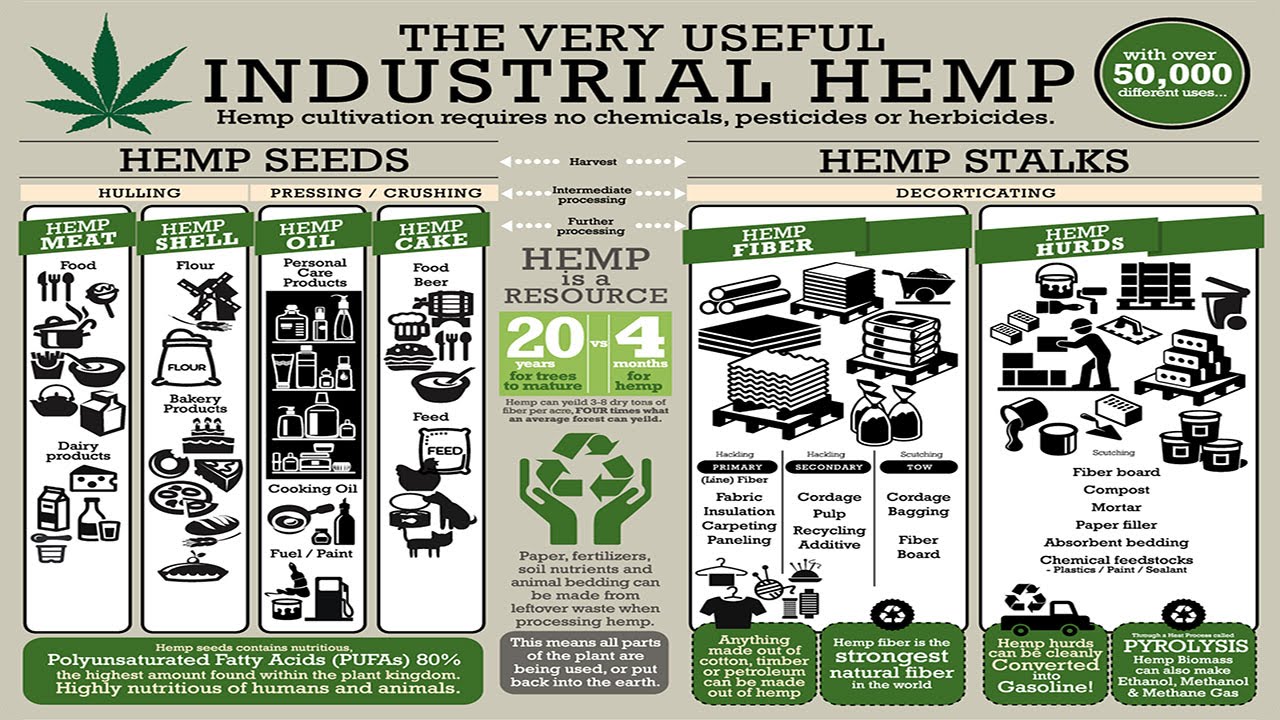
Representative Caroline Troy has begun promoting hemp legislation after the 2014 Federal Farm Bill provided the opportunity. Representative Dorothy Moon has also been Championing CBD legislation and together this year, they brought forward House Bill 122, which would have brought Idaho into compliance with the 2018 Federal Farm Bill and the new Hemp exemption in the Schedule 1 Drug list. The Hemp exemption excludes hemp with a THC content of 0.3% or less from classification as marijuana and makes it an agricultural product. Modern day marijuana typically has a 10% to 30% THC content, a substantial difference from 0.3%.
The 2018 Federal Farm Bill also permits states and tribes to develop hemp plans and promulgate regulations to govern hemp production. It also provides the opportunity if a state doesn’t develop a hemp plan. Then a farmer can obtain a federal license to farm hemp under federal regulations. More on this later, as the administrative side of government will resolve the hemp issue for Idaho.
The Bill, H 122, was well written, called for minimal regulations to be promulgated and would have brought Hemp farming to Idaho. The House Agriculture Committee held both an informational hearing and a regular hearing on H 122. The vote was delayed by the Committee Chair, Representative Judy Boyle, because law enforcement had concerns, even though they did not bother to show up at the hearing. After nearly a month of law enforcement’s attempts to rewrite the bill, and with increasingly absurd versions of their proposed legislation, Chairwoman Boyle held a vote on the original bill, which passed out of the committee, 13 to 2. It then went to the floor of the House where it passed 63 to 7, showing overwhelming support by the people’s representatives.
POLITICS ON HIGH IN IDAHO
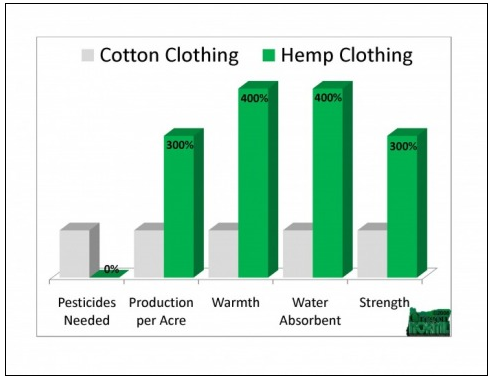 But that’s where good things for Hemp ended. What was supposed to be a small, informal, closed door meeting with law enforcement and the Governor’s representative, to hear concerns about hemp, became a tour de force intimidation event. Four lady legislators were met with a small army of prosecutors, the ISP, other law enforcement and the Governor’s man. They wanted control and they wanted it their way or no Hemp!
But that’s where good things for Hemp ended. What was supposed to be a small, informal, closed door meeting with law enforcement and the Governor’s representative, to hear concerns about hemp, became a tour de force intimidation event. Four lady legislators were met with a small army of prosecutors, the ISP, other law enforcement and the Governor’s man. They wanted control and they wanted it their way or no Hemp!
The Bill moved on to the Senate. Instead of going to the Senate Agricultural Committee, it went to the Senate State Affairs Committee. The power brokers and senior members of the Senate tend to dominate that committee. A hearing was held at which many people testified for the Bill. The ISP, the Canyon County Sheriff and the Fraternal Order of Police testified against it.
It should be noted that a big issue for law enforcement is the new requirement of testing to determine whether the Cannabis they encounter is legal Hemp with 0.3% THC or less, or Marijuana with a much higher THC content. Instead of the simple “hit” by a drug dog to create probable cause for a search, they would now be required to determine THC content with a field test. Law enforcement argues that there are no court admissible field test units. But the standards for probable cause are not the standards for conviction. The Sheriff of Canyon County essentially lied during his emotional plea to the Committee that Hemp would make drug dogs useless.
If the only thing a drug dog can do is find marijuana smells, are they a waste of taxpayer money? Trained drug dogs cost as much as $100,000 each, with handler training. There are much worse drugs out there than marijuana and other public safety issues that a trained nose can smell. Surely, they could still find some use, including still being the first step in a two-step process to find probable cause for a search.
It is true, there are no court admissible field test units available yet. It’s a brand new industry, with new legal parameters. And drug dogs don’t take the witness stand to testify to the facts anyway. They are a tool of discovery, not of conviction ready evidence. Certified lab testing produces court admissible evidence. It simply means that if a detainee in possession of cannabis claims it is hemp, a second step of field testing will be required to determine THC content and whether they are free to go or subject to current marijuana laws and further testing.
I, and several others testified at the hearing about several field testing units available now that can determine, with good accuracy, THC content. Not yet a court admissible tool, but legal precedents and new products will change that. The Legislature also appropriated $240,000 to the ISP to set up 3 in state labs which will be capable of court admissible testing for THC content.
And why is this such a hot button for law enforcement now? Marijuana has been a cash cow for the incarceration industry, which law enforcement is at the center of. Marijuana offenders are easy to catch, and some of the least dangerous “criminals” law enforcement has to deal with.
Based on some calculations, now over 5 years old, every man, woman and child in Idaho pays about $20 a year in taxes to incarcerate people for marijuana. It’s a big part of the incarceration industry’s income. And what a big, publicly funded, industry it is! The recently failed, quarter billion dollar (yes, billion) bond issue for a new Canyon County Jail, is but one county’s example of how much we are expected to pay, to keep America number 1 in the world for incarceration of its citizens.
 Hemp legislation doesn’t make marijuana legal. But it does add one more step in the marijuana enforcement process. It is a step the incarceration industry operators just don’t want to take.
Hemp legislation doesn’t make marijuana legal. But it does add one more step in the marijuana enforcement process. It is a step the incarceration industry operators just don’t want to take.
And right now, the ISP and Ada County have got a problem. Earlier this year, a truckload of hemp was detained and the driver arrested on marijuana charges. Two other truckers were also arrested with some hemp plants. The devil is in the technical details which are still before the courts.
Under Idaho law, cannabis with any THC is illegal. The hemp was grown in a legal state and being transported on an interstate highway to another legal state for processing. The Interstate commerce clause comes into play, as well as whether the hemp was grown properly under federal regulations. Regulations under the 2018 Federal Farm Bill will not be out until this fall, so no hemp will be licensed under the 2018 bill this year. The 2014 Federal Farm Bill was extended to cover growing this year, but was the over 6,000 pounds of hemp seized by the ISP grown as a “legal” crop according to regulations? Will the interstate commerce clause prove to be superior to Idaho Law? Is the ISP liable for an unlawful seizure of very valuable goods, properly in interstate commerce? Was the hemp legally grown? The contest is ongoing.
And the deceit from the ISP is beginning to stack up. They testified in the Senate that there was not adequate testing available, yet they sent 31 samples from the truckload of hemp they seized to different labs. All of the samples came back well under the 0.3% THC level for hemp, so the ISP tried to have the court seal the record of their tests results and hide the fact that it was not marijuana they seized. The court denied their request.
But back to the Senate. At the end of the Senate Committee hearing, Senator Chuck Winder made the motion to send the Bill to the Senate floor for amendments. What happened next was a complete replacement of the Bill’s text, fulfilling law enforcement’s wish list. Essentially, nothing but the Bill number and the Title remained the same.
The Director of the ISP, a non-constitutional, statutorily created entity, would become the “chief law enforcement officer.” A state permit would be required for the transport of hemp in interstate commerce. The ISP may establish check stations throughout Idaho to look for hemp. It would have created a “Hemp Development Fund,” which would go to law enforcement, from monies collected for permits, and any penalties assessed for illegal hemp transport.
The amended Bill did call for a state Hemp Plan by November 1, 2019, but it removed the original Bill’s provisions to exempt Hemp from the controlled Substances Act. It would require the State Hemp Plan be developed …”through the negotiated rulemaking process, in consultation with the governor and the chief law enforcement officer of the state…” Police powers, yes! Administrative rules for hemp growing, yes, after law enforcement consultation. It would create the most highly controlled commercial vegetable in the state. Is humanity’s multi-use, staple crop of the last 5,000 years plus, really that dangerous?
Even though the Hemp Bill was no longer anything like the Bill she co-sponsored, Representative Troy along with Senator Abby Lee fought for its passage in the Senate. The now eviscerated Hemp Bill passed the Senate, 32 to 3.
The completely amended H 122aas Bill came back to the House for concurrence, as amended. It was briefly held in the House Agricultural Committee by Chairwoman, Judy Boyle. Soon thereafter it was pulled into the drawer by the Speaker of the House, Scott Bedke, for unspecified ethics violations, where it died.
 Subsequently, Representative Boyle, Chairwoman of the House Agricultural Committee introduced H300 in the House Transportation Committee to move the ISP away from agriculture, where they do not belong. It moved through the House and on to the Senate. It was then amended in the Senate with the same language previously used in H 122aas, the Senate’s prior evisceration of the Hemp Bill. Essentially, it was the same Bill currently held in the House Speaker’s drawer for ethic violations. When it came back to the House for a concurrence vote, the House Transportation Committee voted against it and when it came to the House floor for a vote, it was rejected by unanimous consent. Fortunately, the Legislature adjourned and the travesty that Hemp legislation became this year, died.
Subsequently, Representative Boyle, Chairwoman of the House Agricultural Committee introduced H300 in the House Transportation Committee to move the ISP away from agriculture, where they do not belong. It moved through the House and on to the Senate. It was then amended in the Senate with the same language previously used in H 122aas, the Senate’s prior evisceration of the Hemp Bill. Essentially, it was the same Bill currently held in the House Speaker’s drawer for ethic violations. When it came back to the House for a concurrence vote, the House Transportation Committee voted against it and when it came to the House floor for a vote, it was rejected by unanimous consent. Fortunately, the Legislature adjourned and the travesty that Hemp legislation became this year, died.
IDAHO’S ‘4TH BRANCH’ OF GOV’T TO THE RESCUE?
For all the shenanigans of the legislative process this year, it will likely be the mandates of administrative government that make it possible to grow and possess Hemp products in Idaho next year. Often called the Fourth Branch, because administrative procedure operates outside the confines of the three constitutional branches of government, bureaucrats may yet be what makes hemp happen in Idaho.
The Idaho Pharmacy Board has a duty to conform Idaho’s Schedule 1 drug list to the federal Schedule 1 changes which now has a Hemp exemption for Cannabis under the 0.3% THC. This is the main factor prohibiting the growing, transportation and processing of hemp products. This conformation should be done by October, accomplishing bureaucratically, what the Legislature failed to do. Barring any glitches in the administrative process, the state doors for growing hemp should be open for the 2020 planting season.
And since the Legislature failed to legislate the basis for a state hemp plan, Idaho farmers will be able apply directly to the federal government for a federal hemp farming license. The USDA regulations will be out this fall, providing for such licensure, so the 2020 planting season doors will also be open at the federal level.
Hemp can happen in Idaho without a state plan. The ISP and law enforcement will get nothing but a hemp threshold of 0.3% to deal with, like it or not. And a billion dollar new industry for Idaho can be born with the least amount of regulation. No doubt, state regulations would be more restrictive than what the feds will release this fall.
But should there be any regulations on this vegetable? The federal government, created by the states, was given a few and certain powers. The Tenth Amendment prescribes a limit to those powers as being those enumerated in the federal constitution. Control of agriculture is not an enumerated power of the federal government.
Are administrative regulations lawful? Article 1, Section 1 of the federal constitution states that “all legislative power shall be vested in the Congress…” Article II of the Idaho Constitution commands the separation of the legislative power from the executive branch, yet the executive branch legislates through rules and regulations, promulgated by bureaucrats, as if they were laws passed by the legislature.
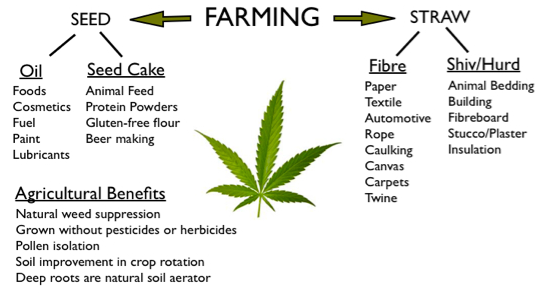
Hemp may soon become yet another thing in our lives controlled by unelected, barely accountable, bureaucratic “legislators,” if we follow the administrative process. Do we want to follow the administrative plans for control or should Idaho break out ahead, ignore the regulators and make hemp just another vegetable?
DEFYING FEDERAL AUTHORITY
13 states are openly violating federal marijuana laws with their various “legalization” schemes. This goes well beyond following the federal regulation of hemp, within the 0.3% THC guidelines. Marijuana legalization is open defiance of federal law.
There is much confusion and controversy about “legalization” and “decriminalization.” Often used interchangeably by some, there is a big difference. “Legalization” affords significant state controls on production, distribution and sales. To operate outside those state controls remains illegal. The market is controlled by the state, which essentially becomes a profitable drug cartel under their “legalization” scheme. “Decriminalization” simply removes the laws which created the prohibition and returns the subject of those laws to its natural state. In the case of hemp, it becomes just a vegetable again.
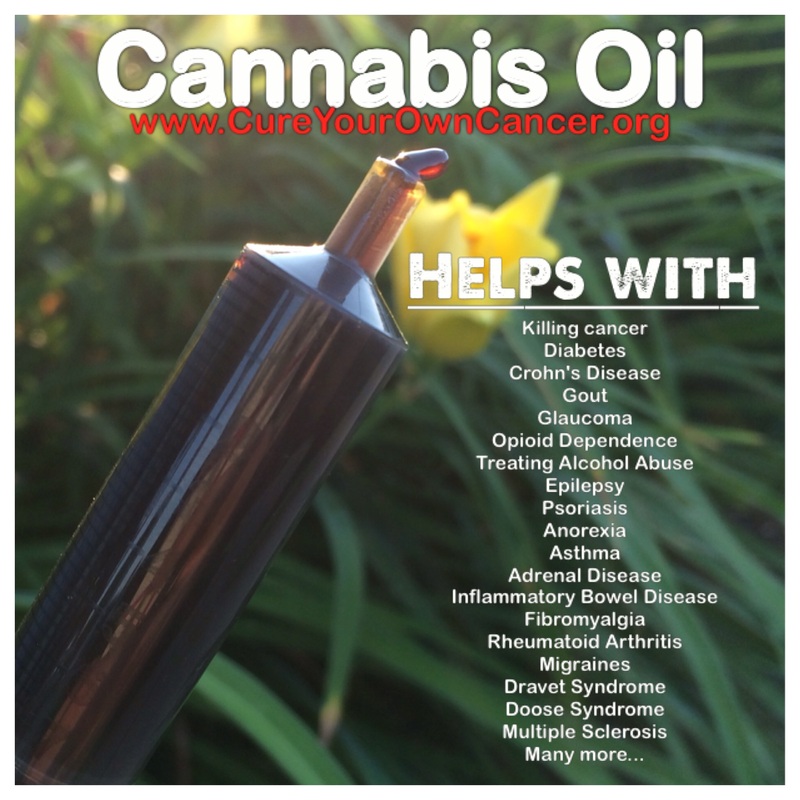 As proposed at both the state and federal levels, Hemp regulation is the “legalization” of Hemp. Not as restrictive as many state’s “legalization” of marijuana, where production quotas, distribution and sales are limited, Hemp is still subject to regulation. A license will be required, but no limits on production, distribution or sales are planned.
As proposed at both the state and federal levels, Hemp regulation is the “legalization” of Hemp. Not as restrictive as many state’s “legalization” of marijuana, where production quotas, distribution and sales are limited, Hemp is still subject to regulation. A license will be required, but no limits on production, distribution or sales are planned.
But why should a non-psychoactive plant like Hemp be regulated by a “legalization” scheme? Why not just plain “decriminalize” and exempt Hemp from all laws? The federal government has no lawful authority to regulate agriculture. There are no public safety issues with Hemp farming. What other vegetable requires a license to farm? 13 states are openly defying federal marijuana laws. Why shouldn’t Idaho defy an unlawful federal Hemp regulation?
To see “legalization” and “decriminalization” accurately, we need to look objectively at what “criminalization” has done. It has protected special interests from the potential competition of industrial hemp, like timber products, petro-chemicals and pharmaceuticals. It created the drug culture we now have by making all cannabis contraband and therefore very profitable for “criminals” to sell, along with other, more dangerous illegal drugs, thereby creating the gateway drug effect. Great profits push market development and thus have built the drug culture. And perhaps the worst effect, all research into the positive uses of hemp was severely limited, suppressing its great potential.
“Legalization” suppresses natural free market operation and “decriminalization” opens free market potential. Can we reverse the damage done by “criminalization” with “decriminalization?” Maybe. But the drug culture it created is now well entrenched in our society.
REALITY GOING FORWARD
And many are concerned that Hemp will bring Marijuana to Idaho. It is a big concern for Governor Little and his main opposition point to Hemp in Idaho. This suggests a belief that it is not already here; that laws against it somehow work. The Sheriff’s Report in my local paper says otherwise, with a frequent listing of marijuana “offenders.” And perhaps the most telling story about the fallacy of marijuana laws working came from talking with a security guard at the Capital this legislative session. It’s a rather boring place to work when the legislature is not in session. He likes the night shift, because there is more action. He regularly has to break up rowdy parties, drug consumption and drug deals on the Capital Mall. So much for “prohibition” and its effectiveness. Can’t keep it off the Governor’s lawn!
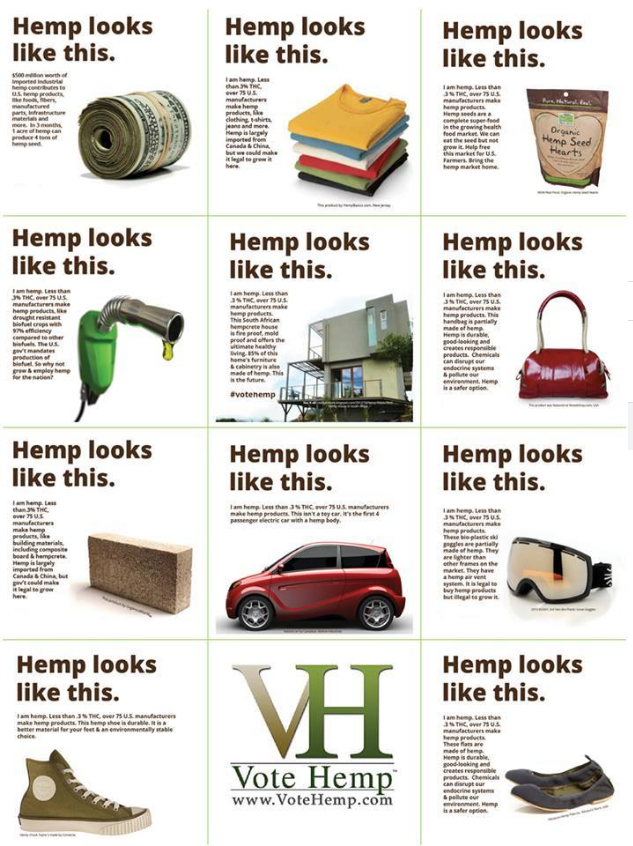
Where will Idaho be as our nation heads down the Hemp road? The USDA has recently ruled that interstate shipments of Hemp cannot be stopped or seized by state law enforcement; that hemp grown under the 2014 Farm Bill is still permitted until the 2018 regulations are out.
A prominent case challenging the federal prohibition of marijuana has been given new life in the courts. The Second Circuit Court of Appeals reinstated a legal challenge to the Schedule 1 listing of Marijuana. That listing is only for drugs that have “no currently accepted medical use in the United States, a lack of accepted safety for use under medical supervision, and a high potential for abuse.” The long history of medical cannabis use and numerous states that allow medical marijuana, preclude its’ listing on the Schedule 1 Controlled Substances list. The court has directed that the federal government to act on the plaintiffs’ de-scheduling petition “with all deliberate speed.”
With Hemp already exempted federally and in 48 states and marijuana criminalization on the ropes where will this lead? Many people are concerned about open recreational marijuana use and its effect on society. Some from personal experience and some from propaganda. But science shows many benefits, even from THC, especially when combined with other cannabinoids for those who suffer pain and other ailments. Perhaps we will be moving “with all deliberate speed,” towards objective understanding of the many benefits cannabis has provided humans for thousands of years, and away from the last 80 plus years of negative propaganda designed to protect special interests from the great positive potential of Hemp.
The big opposition came from the incarceration industry that wants quarter billion dollar jails and quarter million dollar testing facilities and more police state apparatus. And quietly, perhaps with the purchase of a few Senators, the pharmaceutical industry may have also shown it has much to lose to cannabis.
Idaho is currently tied for last place in the hemp revolution. This is about to change, whether the ISP likes it or not. A very productive and positive future is on the horizon. Take the big step. Decriminalize Hemp and get Idaho growing!
See very informative articles:
CBD Industry Poised To Go From Grassroots To Big League In 2019 With Legalized Hemp